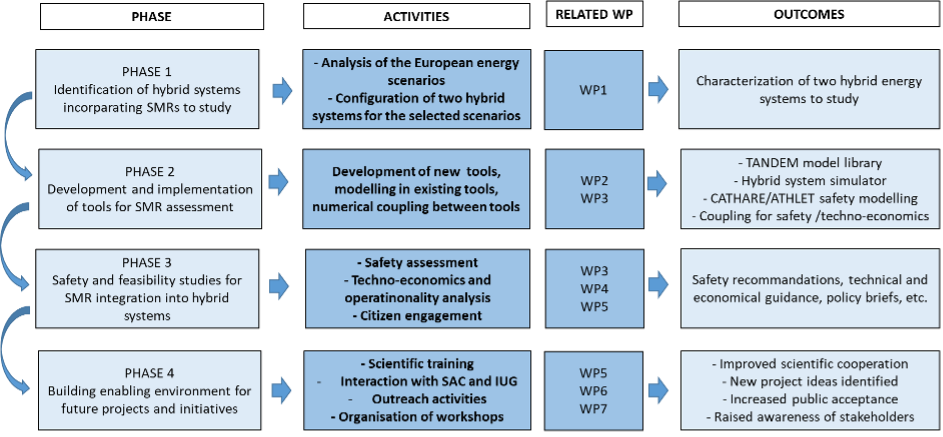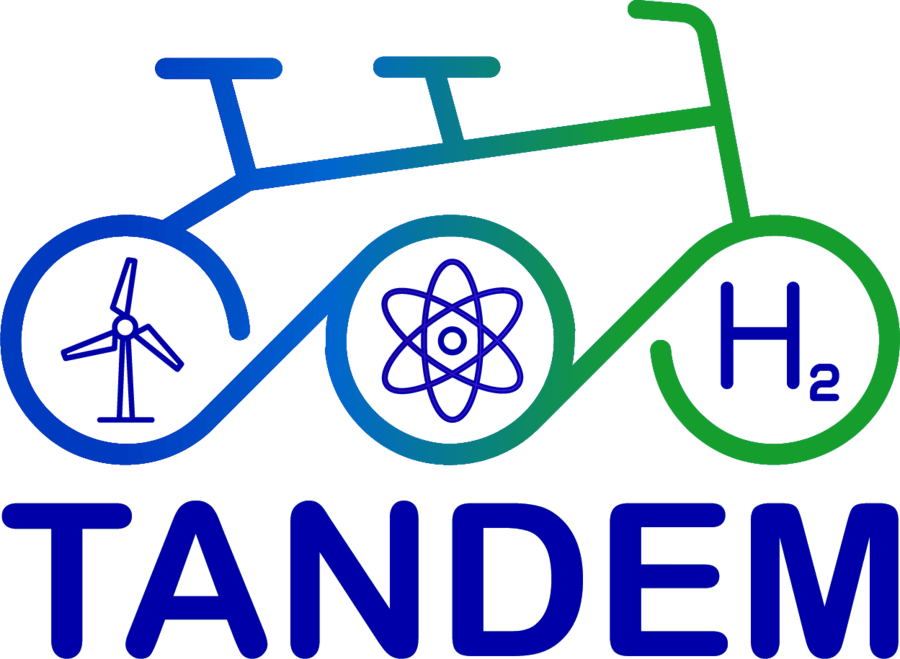The Project
WORK PACKAGE DESCRIPTION

Characterisation of the studied hybrid systems
WP1 focuses on creating basic concepts for constructing hybrid systems. The outcomes of this WP will provide data to other WPs with the aim of conceptualising European energy scenarios, the technical characteristics of hybrid systems for modelling, and providing techno-economic data for system optimisation. This will focus on two hybrid energy systems:
- a hybrid system configuration relating to a district heat network and power supply for an urban area at a local scale;
- a hybrid system configuration relating to an energy serving energy conversion systems, including hydrogen production, within a regional perspective.
Modelling for the simulation of hybrid system behaviour
This WP will develop the modelling to be implemented for the assessment of SMR safety under WP4 and hybrid system operationality and techno-economics under WP3. These modellings rely on the development of both a numerical hybrid system simulator (based on an Open-Source “TANDEM” model library) with the Modelica language, and an SMR simulator with system thermal-hydraulics codes, CATHARE and ATHLET
Time-dynamic techno-economic analysis of the hybrid systems
This WP explores the operability, profitability, and environmental impact of hybrid energy systems for their potential future deployment and scalability through techno-economic and environmental impact assessments. Under this WP, the PERSEE and BACKBONE tools are implemented either as a stand-alone, or coupled to the hybrid energy system simulator developed in WP2.
Safety analysis of SMRs integrated into the hybrid systems
WP4 identifies the specific constraints and risks that could be induced on SMRs further to their integration into hybrid energy systems. A methodology for assessing the potential resulting impacts on safety are proposed and applied to safety case studies. The modelling developed in WP1 will be implemented within this WP for safety studies.
Recommendations, stakeholder & citizen engagement, communication & dissemination
WP5 focuses on communicating about the project and disseminating its results. It provides analyses and recommendations regarding the results obtained from all WPs regarding the relevant technical, economic, and social issues for SMR integration within a European decarbonised energy mix. It also analyses the stakeholders needs, and European citizen engagement regarding SMR technology.
Education & training
WP6 encapsulates the importance of adequate knowledge transfer within the realms of the TANDEM project, identifying the current and expected future knowledge needs of knowledge and capacity-building for SMR safety and hybrid energy system studies. The WP will deliver targeted courses to maximise knowledge transfer as well as implementing strategies to procure courses and programmes for professional training and capacity-building purposes.
Project coordination & management
WP7 carries out the effective technical, scientific, legal, financial and administrative coordination by establishing the mechanisms and management procedures to that end. WP7 ensures the appropriate governance, monitoring, and risk management is undertaken throughout the project.

